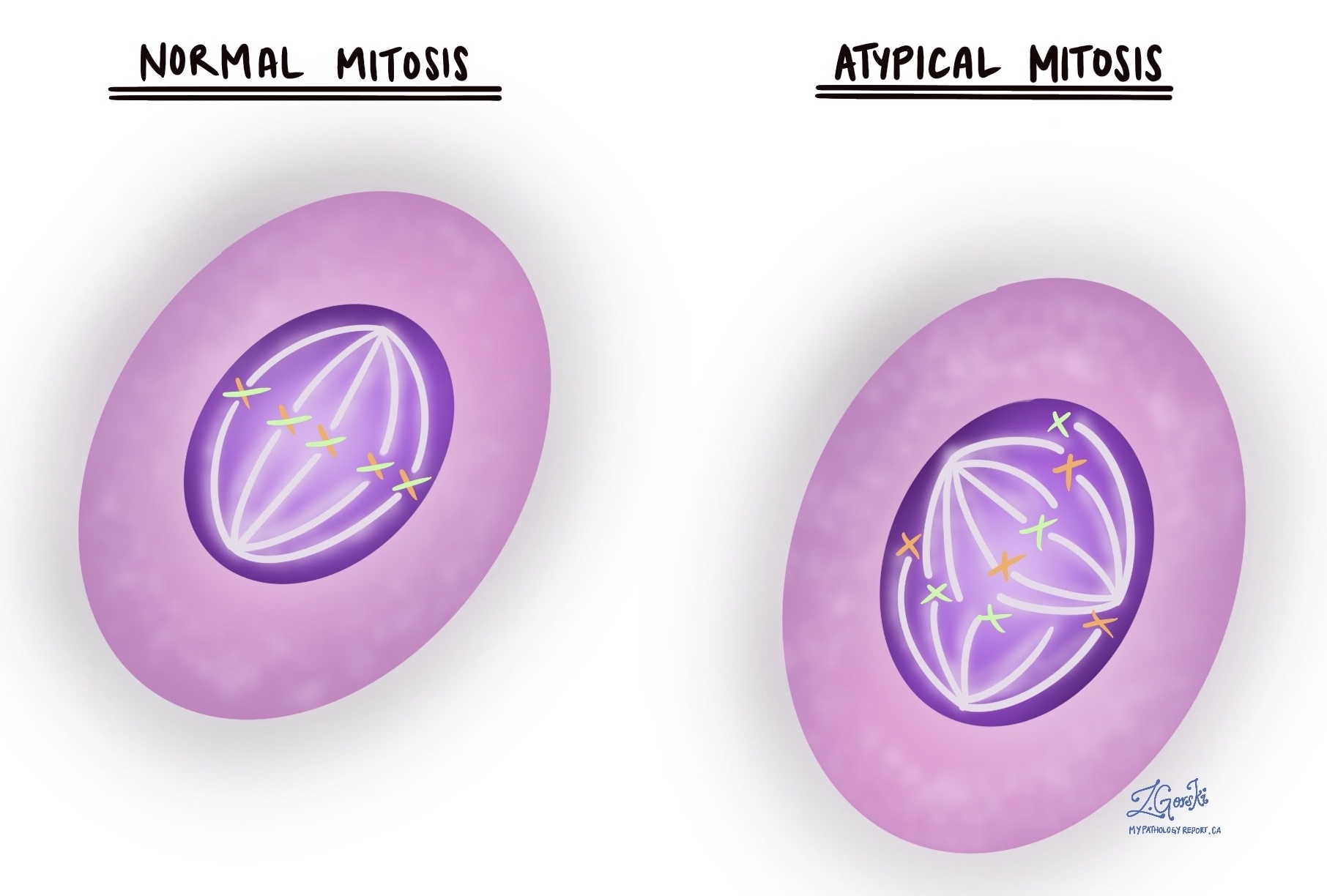
Atypical mitosis refers to abnormal cell division. Normally, cells divide evenly through a process called mitosis, where each new cell receives an equal amount of genetic material (DNA). However, sometimes errors occur during this process, causing the new cells to receive an uneven or abnormal amount of DNA. Pathologists describe these abnormal divisions as “atypical mitoses.”
Why is atypical mitosis important?
Identifying atypical mitoses is important because they often indicate that cells are dividing incorrectly, which can signal the presence of disease, especially cancer. Pathologists carefully look for atypical mitoses when examining tissue samples under a microscope, as their presence helps determine whether abnormal and uncontrolled growth, characteristic of cancer, is occurring in the tissue.
Where is atypical mitosis commonly found?
Atypical mitoses are most frequently found in cancerous tissues, such as breast cancer, lung cancer, colon cancer, and melanoma. Healthy tissue typically does not show atypical mitoses. Although very rare, atypical mitosis can occasionally be seen in tissues damaged by radiation therapy or other types of injury.
Does atypical mitosis always mean cancer?
The presence of atypical mitoses strongly suggests cancer, but it does not automatically mean cancer is present. Pathologists consider atypical mitoses alongside other microscopic findings and additional test results before confirming a cancer diagnosis. Atypical mitoses usually raise concern for cancer, but further evaluation is always necessary to confirm the diagnosis.
What tests do pathologists perform if atypical mitoses are found?
If atypical mitoses are identified, pathologists typically perform additional tests, such as immunohistochemistry (IHC), to gain more information about the cells. Immunohistochemistry uses special stains to identify specific proteins, helping pathologists determine the type and origin of the abnormal cells. These tests help confirm or rule out a diagnosis of cancer.
How does the finding of atypical mitosis affect treatment?
When atypical mitosis indicates cancer, treatment decisions depend on the type of cancer, its location, stage, and the patient’s overall health. Doctors may recommend various treatments such as surgery, chemotherapy, radiation therapy, or targeted therapy. Detecting atypical mitosis early helps ensure a timely and accurate diagnosis, guiding effective treatment planning.



